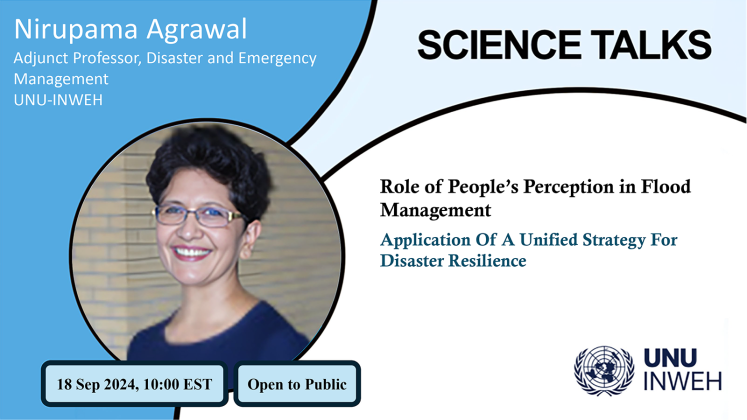Historically, floods have caused more economic and social damage around the world than other types of natural hazards. The recent flood events in many Canadian provinces have raised concerns, including whether communities should be educated with useful knowledge on hazard risks and resilience so they would be motivated to be involved in such discussions and play a vital role in building resilience to disasters. Increasing awareness that perceived risk can differ from the real threat can significantly affect how people think about adaptation and mitigating disaster risks. In this talk, Prof Niru Agrawal will identify gaps between people’s perception of exposure, susceptibility, and a lack of coping capacity, including quantifying these gaps and objectively assessing the highlighted parameters by measuring disaster resilience as the outcome. Using actual geomorphological datasets of a Canadian case study, socioeconomic factors from a Census, and peoples’ perceptions through an in-person survey, she will demonstrate the application of a unified strategy for disaster resilience in Canada, which hopefully will encourage a broader debate in favour of the unified approach.
Join the event

Nirupama Agrawal
Adjunct Professor, Disaster and Emergency Management
UNU-INWEH






